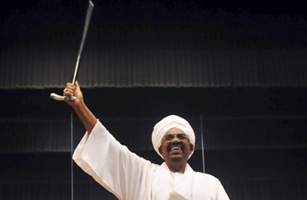
Sudan’s President, Omar Hassan al-Bashir, reckons that being on the run is easy. In March, the International Criminal Court indicted al-Bashir for war crimes and crimes against humanity for his role in the conflict in Darfur, where at least 200,000 people have died since 2003 in a campaign that the Bush Administration described as government-sponsored genocide. The ICC indictments, the first to be handed down against a sitting head of state, obligate the world’s nations to arrest al-Bashir on sight. And yet, he points out, he has attended summits and meetings in seven African and Arab countries over the past few months. “I have not felt [any] restrictions of movement,” al-Bashir told TIME in an interview that took place in the colonial-era presidential palace in Khartoum in early August. “A President has his deputies, assistants and his specialized ministers, so it’s not necessary for [him] to travel to every country. But I have traveled all necessary travels.”
The ICC sees things differently. Going after rulers like al-Bashir may not lead to an immediate arrest, says the court and its backers, but it makes them pariahs and isolates them. Since the indictment, al-Bashir hasn’t set foot in any country that takes its obligation to the court seriously, and although the 52-member African Union last month declared solidarity with al-Bashir against the ICC, a small but growing number of African countries — Uganda is the latest — say they could arrest him if he tries to cross their borders. “It could take two months or two years,” says the court’s chief prosecutor, Luis Moreno-Ocampo. “But President Bashir’s destiny is to face justice.”